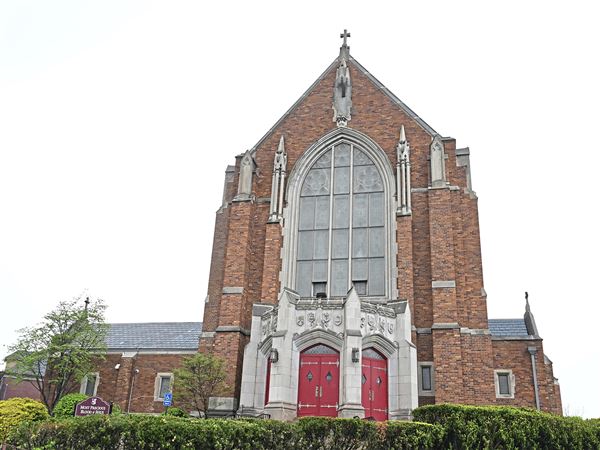HARRISBURG — Increasingly bitter squabbles in Harrisburg that have stalled funding for the University of Pittsburgh and other state-related universities also have frozen more than $57 million intended to help farmers, 4-H clubs, and other agriculture-related endeavors across Pennsylvania.
The money typically is used to support Penn State Extension offices in all 67 counties. But it cannot be sent out by the state until lawmakers have passed a bill that includes “enabling language” by a two-thirds majority vote in both chambers — the same rule that applies to doling out state money to Pitt, Penn State, Temple, and Lincoln universities.
On Wednesday, as lawmakers from both parties and a spokesperson for Gov. Josh Shapiro pointed fingers in various directions, concerns grew about how the mess would affect agricultural interests.
“I don’t think we are at the point where we are ready to pull the plug, but they would very much like their funding,” said state Rep. Dan Moul, R-Adams and the top Republican on the House Agriculture and Rural Affairs Committee.
State Sen. Judy Schwank, D-Berks and the top Democrat on the Senate Agriculture and Rural Affairs Committee, said the funding cutoff will have “real-life impacts on students, on families, on research.”
The extension offices provide expertise in fields like crop growing, food processing, and forestry, and have a role in youth 4-H programs. Penn State spokesperson Wyatt DuBois said university financial reserves are being used to cover extension program expenses.
“We can’t do that forever,” he said.
The $57.7 million for Penn State extension offices was included in a $45.45 billion spending bill signed into law by Mr. Shapiro on Aug. 3. But language that gave specific authorization for the extension money’s use was included in a separate bill, which earmarked $166 million for Pitt and other amounts for the other state-related schools.
Because it involves giving state money to non-state government entities, the bill requires a two-thirds majority for passage. It failed in a 130-73 vote on July 6 in the House, where it got support from all Democrats and some Republicans.
On Oct. 4, Democrats who control the House pushed through a new plan to fund the universities using a grant program. It passed on a late-night, 115-88 vote, but not before Rep. Jesse Topper, R-Bedford, pointed out on the House floor that the approach would leave the $57 million for the extension program without formal approval.
“Sometimes when we don’t vet ideas or we rush through them, we can miss things,” Mr. Topper said.
The proposed new grant program with $642 million for higher education institutions appears to have little support in the Republican-controlled Senate.
There was no clear plan Wednesday for how funding for Pitt and other state-related schools would advance. The Senate wrapped up a string of three session days and is not scheduled to return to Harrisburg until mid-November, while the House is scheduled to return for session days next week.
In a letter to top lawmakers dated Monday, the presidents of the four state-related universities urged them to act. “Our students, families, employees and communities are counting on you,” the letter said.
A spokesperson for Mr. Shapiro, Manuel Bonder, said the governor believes the funding for state-related schools is critical. He urged legislative leaders “to find a solution and complete this long-delayed unfinished business and deliver for our students and universities as soon as possible.”
A number of lawmakers said bipartisan negotiations — which have been rare in Harrisburg this year — must take place. Sen. David Argall, R-Schuylkill and chairman of the Senate Education Committee, said, “I’m trying. I’m talking to people.”
State Sen. Jay Costa, D-Allegheny and the Senate Democratic leader, said waiting any longer is not an option. He said he hopes House Republicans will “come to the table in good faith” to negotiate.
“Ideally, we will be able to use the traditional path and pass this funding with a two-thirds vote, but at the end of the day, we must use whatever path is available,” Mr. Costa said.
Beth Rementer, a spokesperson for House Democratic majority leader Matt Bradford of Montgomery County, said attempts to pass the funding in the lower chamber failed “because of a handful of House Republican extremists.” She urged the Senate to pass the grant program and “end this unfortunate and completely unnecessary stalemate.”
Mr. Moul said House Democrats have used an unconstitutional approach to funding the schools. He also said many Republicans view funding for Pitt in a less favorable light than the other schools because they question its administration’s approach to the funding system.
Rep. Eric Nelson, R-Westmoreland, said the vote on the proposed grant program — which occurred at 10:57 p.m. on Oct. 4 — was “a great example of why we shouldn’t pass bills in the middle of the night.”
Rep. Seth Grove, R-York and the top Republican on the House Appropriations Committee, said, “We need leadership from Gov. Shapiro to work with all sides to get this funding done.”
Ford Turner: fturner@post-gazette.com
First Published: October 25, 2023, 8:54 p.m.
Updated: October 26, 2023, 4:02 a.m.


















